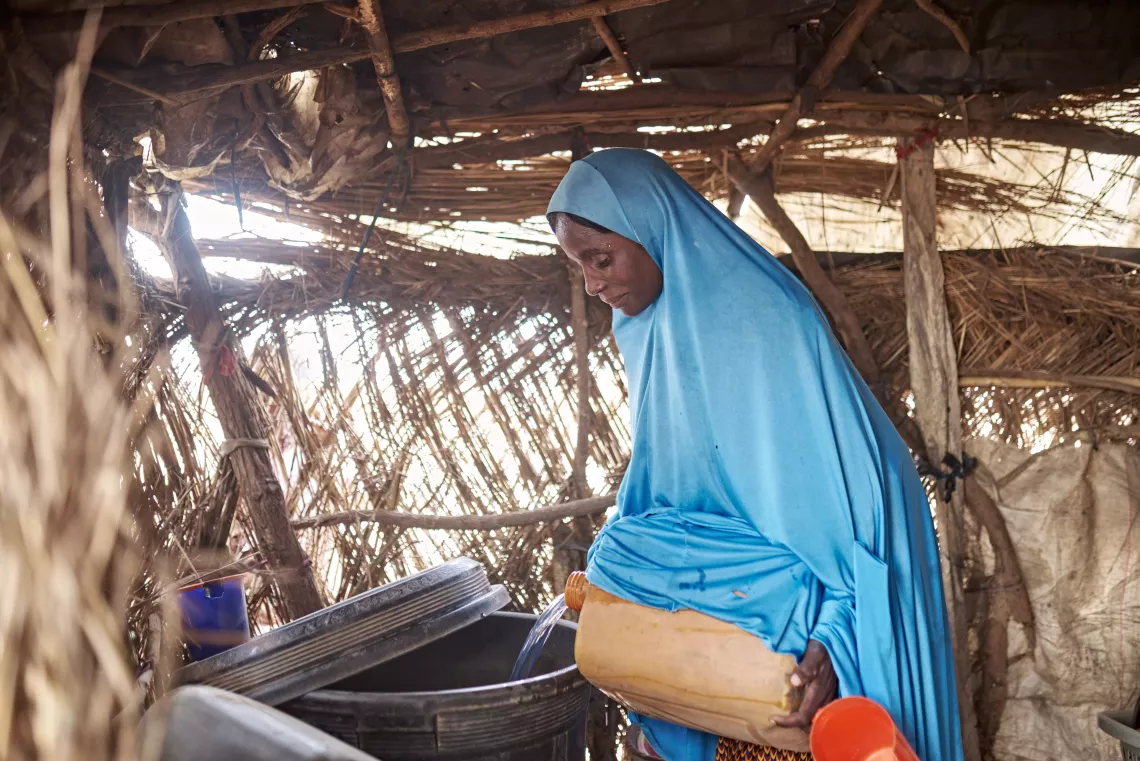In the relentless struggle for survival amidst the challenges of internal displacement, Mairama Alhaji and her eight children have weathered seven years of hardship. Initially uprooted from her village, Mattakam, in northeast Nigeria, Mairama found herself in the Muna IDP Camp in Maiduguri, only to be displaced again four years later due to the closure of IDP camps in the city. They had to move again, this time with their meagre belongings.
Alongside other displaced families, they found themselves in the Government Girls Arabic Secondary School (GGASS) IDP camp in Mafa, 40 kilometres from the state capital. Notwithstanding the change in location, the 44-year-old widow and her children continued to face persistent challenges ranging from a lack of decent shelter and clean water to the absence of electricity, education, and livelihood opportunities.
However, the true test came on Tuesday, March 15, 2022, when a devastating inferno swept through a large section of the GGASS Camp, leaving nothing in its wake. Mairama, the 44-year-old widow, vividly recalls the overwhelming loss:

“There was nothing left, not a pin.” Mairama recounted her voice filled with anguish, standing outside a makeshift shelter she had constructed with the help of her children a few days after the fire.
“No clothes, no bed, nothing. It felt as if we had died, and there was no trace of us remaining. What hurt me the most were not the clothes and pots, but the buckets and containers that we used to store water. Every family relied on those containers because we had to trek long distances to fetch water.”
More than 1,400 households affected by the fire shared this profound sense of loss. For them, the destruction of their shelters and belongings served as a painful reminder of the immense losses they had endured since the onset of the conflict. Over 1,500 shelters were destroyed in the fire, and tragically, two children lost their lives.

In response to the dire situation, UNICEF and its partner, GoalPrime Organisation of Nigeria, swiftly intervened through their Rapid Response Mechanism (RRM) programme and brought a glimmer of hope to Mairama and the many families affected by the devastating fire at the GGASS IDP Camp. The intervention included the repair and upgrade of three boreholes to solar-powered systems for a continuous supply of clean water. Life-saving non-food items (NFI), such as detergents, kettles, buckets with lids, cups, sanitary pads, soap bars, jerry cans, and toothpaste, were distributed to over 1,400 affected households, with a focus on families headed by females and widows.
The RRM programme, which receives funding from the European Civil Protection and Humanitarian Aid Operations (ECHO), provides vulnerable populations—particularly women and children—with timely and essential assistance. The programme aims to provide immediate emergency services to crisis-affected populations living in camps and hard-to-reach communities, alleviating suffering and offering essential services during displacements, disease outbreaks, and natural disasters.

